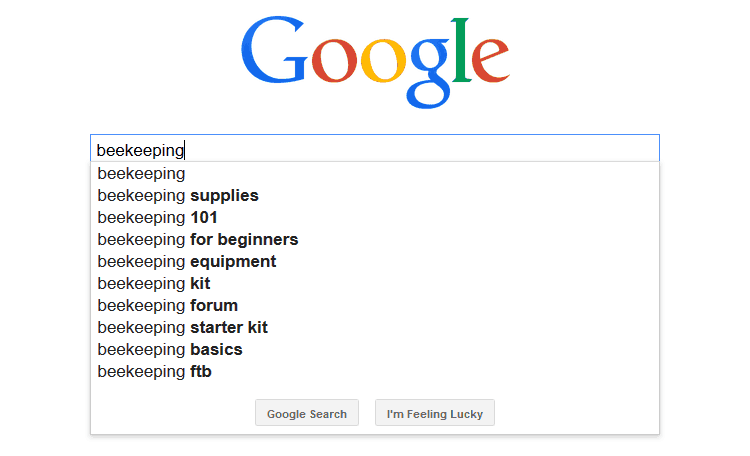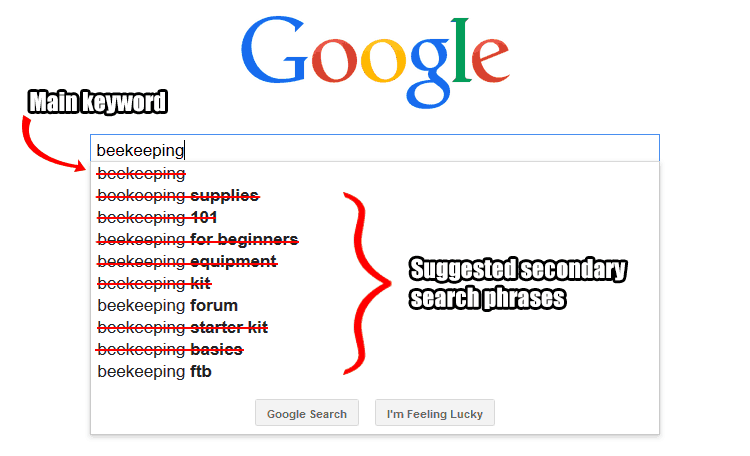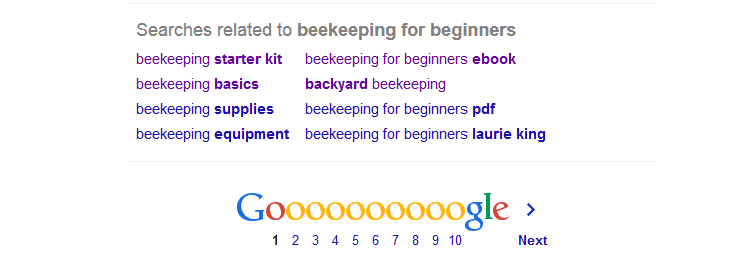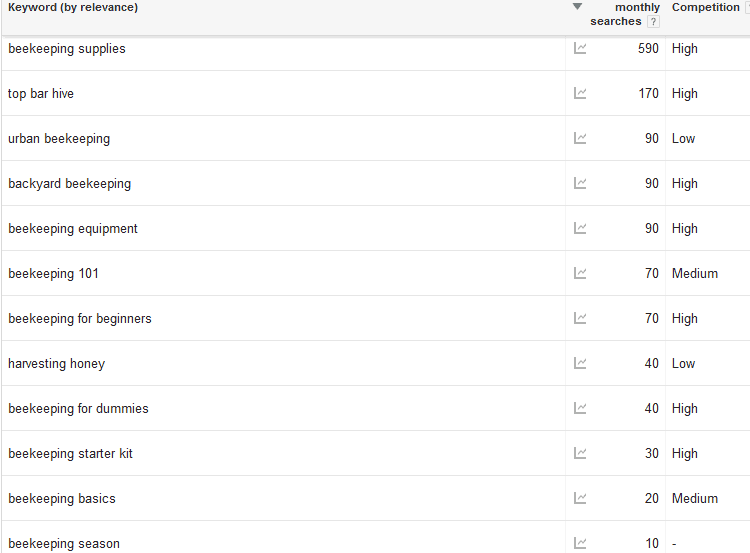Keyword Research
Nobody is more familiar with what you sell than you are. This often leads business owners to write content using word choices that are intrinsic to your industry.
Get a Free Marketing Analysis and Consultation
Nowspeed can review your Website, SEO, PPC, Email or Social Media Campaigns and identify ways to make an immediate impact!
It’s quite possible that your customers use different terminology for your products or services that are different than what you use.
In addition, you may not know what aspects of your services are most important to your customers. What are the questions that they’re seeking answers to? That’s where keyword research comes in.

We use keyword research to build a picture of who your customers are, and what they want.
When you start doing keyword research, you know what it is you’re looking for. You have a buyer persona in mind. You might be looking for 60-year-old men and women preparing for retirement, or young women interested in fashion, or 40-year-old men in the midst of a midlife crisis. Or it might be lawyers, or travel agents, or people who like athletic shoes. Whatever it is that you’re selling, keyword research helps us understand how your customers think about your products, and the language they speak.
The best way to explain how to do keyword research is to walk you through a hypothetical example. Suppose we have a client who wants to sell beekeeping supplies, and they want us to rebuild their site with written content that will rank well in Google results for searches that have to do with beekeeping supplies. That’s where we turn to Google.

Google’s auto-completed searches gives us insight into the most popular keyword phrases relevant to our services.
When you’ve done searches on Google, have you noticed how Google auto-populates search results that start with whatever words you’ve already typed in? The search engine isn’t making suggestions at random. It’s based on statistical analysis. Google has already crunched the numbers, and identified the most popular search queries related to a given keyword. For instance, the phrase “beekeeping” is obviously the most popular search query related to the keyword “beekeeping.”
But, Google helpfully volunteers the nine most common longer search phrases that begin with the word “beekeeping.” The most common multi-word phrase is “beekeeping supplies.” The fourth most frequent multi-word phrase is “beekeeping equipment.” The eighth is “beekeeping basics.” Every phrase on that list that is relevant to selling beekeeping supplies is going to wind up on the website that we’re building for our client. These are the cornerstones, the bread and butter. The equivalent of the signs summarizing the contents of each aisle at your local supermarket.

This is when we make the transition from keyword research to keyword targeting, in which we craft content that incorporates relevant, popular keyword phrases.
On the front page of the site, we may begin with a bit of introductory text that reads, “McGonagall & Sons Beekeeping Equipment Company has been in the business of selling beekeeping supplies since 1951. If you’re just learning the beekeeping basics, take a look at our Beekeeping for Beginners page, which offers beekeeping starter kit paraphernalia for those who are just venturing into beekeeping 101.”
This is a heavy-handed approach. It’s so awkward that it’s obvious we’re engaging in keyword stuffing—artificially cramming in a bunch of keywords in an attempt to manipulate search rankings. This is actually a good way to get dinged by Google. Instead, we should create pages that center on each desirable phrase. We can create a “beekeeping starter kit” page, will help us cover searches for both “beekeeping kit” and “beekeeping starter kit,” a “beekeeping for beginners” informational page, and so on.
However, you want to be sure to filter out irrelevant queries. Notice in the list of suggested phrases we’ve crossed out as we’ve built our content, we’ve not touched on “beekeeping forum” and “beekeeping ftb.” That’s because the first one has to do with online discussion boards about beekeeping, which is probably outside the scope of the business. Secondly, there’s “beekeeping ftb.” A bit of research shows that “ftb” has to do with a site that makes addons for the computer game Minecraft. That’s obviously not relevant to the needs of our beekeeping store, so we aren’t going to bother with that. We don’t want to hit every phrase, but rather only the ones that are highly relevant for our site.
Keyword analysis and targeting doesn’t stop with the main pages of the site. Keyword research allows us to come up with useful blog topics and other content that we can rank for.
For starters, we already talked about having a “beekeeping for beginners” page, so why don’t we delve into that? Google’s auto-suggest feature isn’t going to be terribly useful here, because it’ll only show phrases that begin with “beekeeping for beginners.” That’s a little too specific. What we want are other words and phrases that users (and search engines!) will feel are highly relevant to that topic, but that don’t incorporate that exact and rather bloated phrase.
Thankfully, Google can help us here as well. What we do is go ahead and submit a search for “beekeeping for beginners,” but rather than looking at the top search results, we scroll all the way down to the bottom of the first page. Here, Google will provide a list of search terms that it believes are interrelated with the search term we just submitted. In this case, you can see what we get in the screenshot above. We can also use Google Adwords to find additional keywords, as shown to the right.
What’s useful here? It’s all a bit general unfortunately. “Beekeeping basics,” “…supplies,” and “…equipment” are some good phrases, but are probably covered in our main pages. “Backyard beekeeping” is the first useful deviation from the terms we’ve been looking at. But this is just a start. We can use these searches as a launching pad for more keywords. In a search for “beekeeping basics,” Google suggests a search for “beekeeping basics beekeeping starting a beehive” and “beekeeping for dummies.” A search for “backyard beekeeping” gives us “urban beekeeping” and “top bar hive” (which is a design style for man-made beehives).

We can then use the results of our keyword research to draft a list of topics to write about.
Examples include:
- Beekeeping Basics – This would likely be a very long, detailed blog post, as it’s such a core keyword phrase
- Starting a Beehive
- Backyard Beekeeping
- Urban Beekeeping
- Building a Top Bar Hive
We’ve come up with a keyword-based topic list in only a couple minutes. If we go back examine top-ranking sites, we can pick out keyword phrases might have been attractive to Google. This research yields phrases and topics like “extracting equipment,” “harvesting honey,” and “comb-building.” These might be useful blog topics on their own, or as sub-topics of larger posts.
We can also use keyword research tools, like Google AdWords. While AdWords’ keyword research tools are intended for use in developing PPC campaigns, they’re also useful for SEO purposes.
When our keyword research and content development process has been refined over the years, the above has always formed the base level of our approach to keyword research and targeting.

Keyword research yields valuable information about relevant topics, interrelated subjects, our audience’s jargon, and more.
The purpose of keyword analysis is to discover how the general population discusses your product, so that you can effectively refine your digital marketing to capture your audience’s attention. By following the above guidelines, and using analytics to monitor our performance and adjust where necessary, we can readily outperform competitors, both with customers and search engine crawlers.
To learn more about how keyword analysis can help you improve your website’s performance and profitability, contact Nowspeed today!
So let's
talk.
We're always excited to dig into the details of your company and what strategy can help you meet your goals. So let's talk and lay out a plan for success!